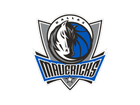Hunter and Stern were considered adversaries but were privately close friends, two lawyers who fiercely represented their respective sides. And in those days, the owners and the players were from completely different worlds. There appeared to be a disconnect between players who were embracing the hip-hop era and player empowerment, and owners who wanted to keep the league the way it was during the Magic Johnson-Larry Bird-Jordan years. “We got along well with one another,” Hunter said of Stern. “It was funny, the only difficult time was when we had to negotiate a contract. The reality is that we could have been much closer friends than we were. We were close professionally. We were respectful of one another, etc. But he and I could have been real friends, but for the fact that every couple years I was going to have to negotiate a deal, and it was like boxers, you know, you go into your corner, yes. “So that’s how it worked. But, you know, David was not going to hurt or damage the league. Yes, you know he was going to do his job and the negotiations were not easy. He didn’t give me anything. We got what I was able to demand through the players. He realized, or they realized, the confidence that the players had in me at the time and that the players hung in there.”

Rick Welts, CEO, Dallas Mavericks Yes, this is highly unlikely ... but insiders insist he would be a perfect stopgap if Silver unexpectedly left early. The reasons are clear — no one is more experienced or a better people person. Welts worked in the league office as far back as the 1980s and learned from David Stern. He was a key to the Warriors’ rebuild, a mastermind behind the construction of Chase Center and is focused on finding a new venue for Dallas. But he’s not a lawyer, has already retired once and doesn’t covet the top job.
One of the key problems of European basketball, in his opinion, is the absence of an authoritative figure at the head of the Euroleague. "The Euroleague needs a man like Adam Silver or before him David Stern. Their decisions were unquestionable. What will happen in the future, no one knows. NBA Europe is coming, and the question is whether they will take over the clubs or the players. There are big unknowns, both for me and for everyone else."
In an interview with MozzartSport, one of basketball’s most prominents figures spoke about what one of the biggest issues in European basketball is: the lack of a strong, decisive leader at the top of the Euroleague organization. “The Euroleague needs someone like Adam Silver or like David Stern, before him. Their decisions were unquestionable. As for the future, no one really knows. NBA Europe is on the horizon, but it’s unclear whether they’ll take control of the clubs or the players. There are a lot of unknowns, for me and for everyone else.”
Michael Beasley when he was fined: “They got fined $20k. I got fined $100k. My shoe deal dropped. My name in the NBA was f***ed. We went to Paris. David Stern came and shook everybody’s hand except mine. I was standing next to Chris Quinn and Mark Blount. He looked over me. I get it—I got one over on them, and they got one over on me. You feel me?”
Advertisement

Silver was asked in 2019 what it would take for him to punish a team in the same way his predecessor, David Stern, penalized the Minnesota Timberwolves a quarter-century ago. The Timberwolves signed forward Joe Smith to a series of inexpensive one-year deals with a promise to ink him to a massive future contract. The NBA fined the Timberwolves $3.5 million, stripped them of five first-round picks, voided Smith’s contract and temporarily suspended then-owner Glen Taylor and general manager Kevin McHale. “Certainly, if we had an incident along those same lines, we have the same tools available to us,” Silver said. “I think that … was just such a bright-line violation, and at the time the league office responded very forcefully. Again, I think the environment I’d say has changed in certain ways. Having been involved with the league for a long time, I know there’s been some people out there saying things have gotten much worse.

He's about 5'6", glasses on, sitting in his chair — looking at me. He goes: David Stern: "Mr. Childs, Mr. Childs." I'm like, "Yes, Mr. Stern." David Stern: "I never thought you would get into a fight — let alone with Kobe." I said, "Mr. Stern, I don’t care if it was my mama or my daddy — if they hit me with an elbow, I’m fighting them too." And he just started busting out laughing. He said: David Stern: "Look, this is what I’m gonna do. If you don’t get into another altercation the rest of the season, I’ll give you 80% of your money back. Twenty percent goes to charity."
“What I would tell [commissioner] David Stern and then Adam [Silver] … you know how in soccer, for the Olympics it’s 21-and-under, 22-and-under, whatever it is? And then [FIFA] own the World Cup? And the World Cup’s a bigger event? I’m like, ‘give [the Olympics] our young kids. Do the same thing as soccer. Let the 21-and-under play for the Olympics, and then create our own international World Cup.’ … And they were like, ‘Well, FIBA. We got this contract with FIBA.’ Well that contract will expire. And them immediately — like, they wouldn’t tell me anything — but they were like, ‘Okay, we signed an extension with FIBA,'” Cuban explained, giving a dramatic eye-roll.
Marc Stein: Adam Silver will soon crown the ninth different champion in his 12 postseasons as NBA commissioner … and a record seventh new champion in a span of seven seasons in #thisleague. David Stern crowned eight champions in 30 postseasons. More: https://tinyurl.com/ywt4zywr
About an hour before the story appeared, Collins was on the phone with then-NBA commissioner David Stern and then-deputy commissioner Adam Silver. “They were extremely supportive,” Collins said. “I couldn’t have done what I did without seeing what the leadership of the NBA was doing. When I first entered the NBA in 2001, players were allowed to use homophobic language without consequences. That changed in the mid-to-late 2000s. There started to be fines for using homophobic language. When I saw those fines being levied, especially with a minimum fine of $50,000 being implemented, that to me was a sign that NBA leadership has my back.”
Advertisement

Shaquille O'Neal: David Stern asked where I wanted to play in NBA - hot or cold city
Shaquille O’Neal: I don't know if you heard this story, but in 1992, I think with the draft, was it in June or something? I meet Mr. David Stern in March and he says to me, "Hey, can't wait for you to come to the NBA." Then he pulls me to his side and asked me 'You want to play where it's cold or where it's hot?' He asked me that. Yeah, he did. He asked me that and I was like, "Hot!” And he smiled and I smiled and then couple days later they had the draft thing and the top three things and then Minnesota was number three, then Charlotte was number two and then Orlando, Florida was number one. I was like I didn't think anything about it. But you hear a lot of these conspiracy theories and know there's a lot of situations that could make these things sound good and sound true like ‘okay Dallas gets rid of a one of the one of the best players but oh! we we're getting a new one.’ Ding, ding, ding, ding, ding. So I don't want to use the word conspiracy theory but it's very interesting how it all played out.
John Salley: “MJ came out in 1984 and David Stern became the commissioner, and he said that, ‘Michael, you and I are going to change the world.’ So part of the reason he’s the messiah and they don’t talk about anybody else is because that’s part of it. He is the greatest I played against, but there were some bad people that came before — but they will never get that shine.”
Jack McCallum on David Stern: Stern would tell you to go f**** yourself then the next day he could be back with you
I’ve always heard stories about David Stern calling up reporters and yelling at them. Did he ever do that with you? Jack McCallum: Oh my god, yeah. I missed him when he was gone. Here was his greatest thing: Stern could tell you to go fuck yourself, and he would always had this thing… there was something Trumpian about his personality. ‘I’m the smartest guy in the room, you don’t know what you’re talking about,’ but the next day, he could be back with you.
NBA commissioner Adam Silver unveiled the NBA Africa Dikembe Mutombo Humanitarian Award on Feb. 15 at the 10th annual NBA Africa All-Star Luncheon. The NBA described the award as “a new annual honor that will recognize a person or an organization that works to advance health, education or economic opportunity across the continent of Africa.” Following his retirement from the league in 2009, Mutombo, a native of the Democratic Republic of Congo, was the NBA’s first global ambassador, as appointed by late NBA commissioner David Stern.